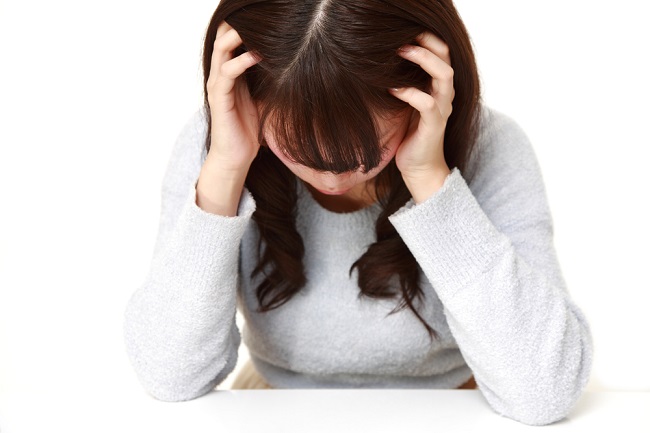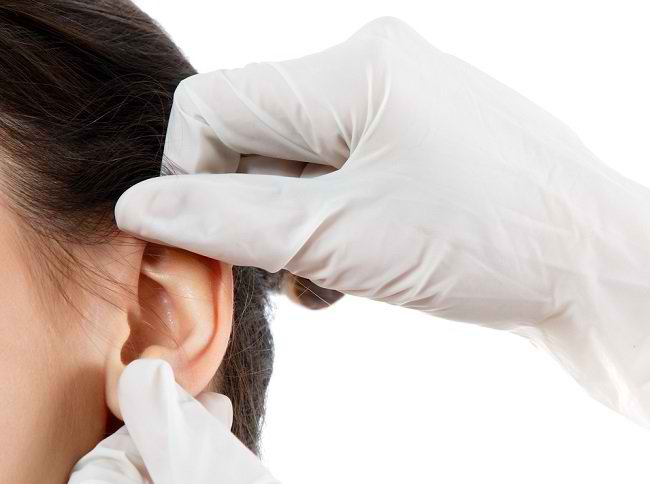Antianxiety is a group of drugs used to treat anxiety disorders, panic attacks, or excessive fear and worry. Antianxiety drugs or anxiety relievers are used for short-term treatment and should only be used according to a doctor's prescription.
Antianxiety works by affecting the central nervous system and balancing chemicals in the brain, resulting in calmer brain activity.

Besides being useful for relieving anxiety disorders, antianxiety also serves to:
- Treating seizures due to epilepsy
- Treating bipolar disorder
- Treat pain due to trigeminal nerve disorders (trigeminal neuralgia)
- Treating insomnia (insomnia)
- Overcoming acute alcohol withdrawal symptoms
- Being an additional drug before the anesthetic procedure
- Become a sedative
- Relieves symptoms of depression
Antianxiety Type
Below are some types of drugs that are included in the antianxiety class:
- Anticonvulsants or anticonvulsants, besides having the effect of inhibiting abnormal electrical activity in the brain, several types in this group are also useful for helping to stabilize mood.
- Barbiturates are useful for treating severe insomnia, relaxing muscles, and lowering heart rate, respiratory rate and blood pressure.
- Benzodiazepines, are useful for treating severe anxiety disorders, overcoming severe insomnia that interferes with daily life, and relaxing muscles.
- Antidepressants, reduce anxiety by increasing levels of chemicals (neurotransmitters) in the brain, so that the mood can be more controlled.
Precautions Before Using Antianxiety
Antianxiety should only be used as prescribed by a doctor. There are several things you need to pay attention to before using antianxiety, including:
- Tell your doctor about any allergies you have. Antianxiety drugs should not be given to patients who are allergic to any drug in this class, including anticonvulsants, barbiturates, antidepressants, and benzodiazepines.
- Tell your doctor if you are taking any medications, supplements, or products
- Tell your doctor if you have or have had liver disease, kidney disease, heart disease, glaucoma, myasthenia gravis, impaired body coordination, porphyria, alcoholism, drug abuse, asthma, COPD, sleep apnea, as well as mental disorders, such as depression, psychosis, or suicidal ideation.
- Tell your doctor that you are taking antianxiety medication before having surgery, including dental surgery.
- Tell your doctor if you are pregnant, breastfeeding, or planning a pregnancy.
- Do not drive a vehicle or do anything that requires alertness while you are being treated with anti-anxiety drugs, as this medicine may cause dizziness or drowsiness.
- Do not increase, decrease, or stop treatment with antianxiety carelessly, because it can increase the risk of dependence or withdrawal effects.
- Do not consume alcoholic beverages while undergoing treatment with anti-anxiety, because it can increase the risk of side effects,
- See your doctor right away if you have an allergic reaction to the drug, a serious side effect, or an overdose after using an antianxiety.
Side Effects and Dangers of Antianxiety
Side effects that can arise after using antianxiety drugs include:
- Drowsiness
- Confusion
- Headache
- Blurred vision
- Nauseous
- Stomach ache
- Diarrhea or constipation
- dry mouth
- Increased blood pressure
- Heart palpitations or irregular heartbeat
- Desire to commit suicide
- Orthostatic hypotension
- Weight gain
- Sexual dysfunction
Immediately see a doctor if the side effects mentioned above do not subside or are getting worse. You should also see a doctor immediately if symptoms of an allergic drug reaction appear which can be characterized by symptoms such as an itchy rash, swelling of the eyelids and lips, or shortness of breath.
Types, Trademarks, and Antianxiety Doses
The dose of antianxiety given depends on the type and form of the drug, as well as the age and condition of the patient. Here is the explanation:
Anticonvulsants
- CarbamazepineTrademarks: Bamgetol 200, Carbamazepine, Tegretol, Tegretol CR.To find out the dosage and more information about this drug, please visit the carbamazepine drug page.
- Lamotrigine
Trademarks: Lamictal, Lamiros 50, Lamiros 100
To find out the dosage and more information about this drug, please visit the lamotrigine drug page.
- Valproic Acid
Trademarks: Lepsio, Procifer, Sodium Valproate, Valeptic, Valepsi, Valkene, Valpi, Valproic Acid
To find out the dosage and more information about this drug, please visit the valproic acid drug page.
Barbiturates
- Phenobarbital
To find out the dosage and more information about this drug, please visit the phenobarbital drug page.
- Butabarbital
Trademark: -
For a complete explanation of the uses, dosages, and how to use butabarbital, please visit the Blindbarbital Drugs page.
- Pentobarbital
Trademark:-
For a complete explanation of the uses, dosage, and how to use pentobarbital, please visit the pentobarbital drugs page.
Benzodiazepines
- Alprazolam
To find out the dosage and more information about this drug, please visit the alprazolam drug page.
- Clobazam
To find out the dosage and more information about this drug, please visit the clobazam drug page.
- Diazepam
To find out the dosage and more information about this drug, please visit the diazepam drug page.
- Lorazepam
To find out the dosage and more information about this drug, please visit the lorazepam drug page.
- Chlordiazepoxide
To find out the dosage and more information about this drug, please visit the chlordiazepoxide drug page.
- Clonazepam
Trademark: Clonazepam
To find out the dosage and more information about this drug, please visit the clonazepam drug page.
- Midazolam
To find out the dosage and more information about this drug, please visit the midazolam drug page.
- estazolam
Trademarks: Alena, Esilgan, Elgran
To find out the dosage and more information about this drug, please visit the estazolam drug page.
Antidepressants
In addition to the drugs mentioned above, antidepressants can also be used to relieve anxiety. Types of antidepressants that can be used include SSRIs (selective serotonin reuptake inhibitor), SNRIs (serotonin-norepinephrine reuptake inhibitors), and tricyclic antidepressants.
Buspirone
Buspirone is a drug to relieve anxiety. This drug works by affecting serotonin levels in the brain.
Trademark: Xiety
The dose to treat anxiety disorders in adults is 5 mg 2-3 times a day. The dose can be increased slowly by 5 mg at intervals of 2-3 days. The maximum dose is 60 mg per day.









